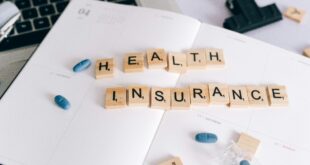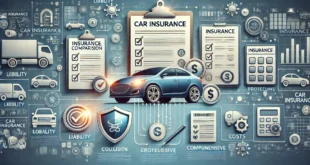Introduction:
Car accidents can be distressing events, and when the other driver involved lacks insurance coverage, the situation becomes even more complicated. In such cases, understanding the legal and financial implications is crucial for all parties involved. This article aims to delve into the intricacies of car accidents where the other driver is uninsured, exploring definitions, types of insurance, the advantages of being insured, and the steps to navigate through such challenging scenarios.
Definition:

An uninsured motorist refers to a driver who does not possess any form of auto insurance coverage or whose coverage is insufficient to meet the damages caused in an accident. In many jurisdictions, driving without insurance is illegal due to the financial risks it poses to other motorists and the potential burden it places on public resources.
Types of Insurance:
There are several types of auto insurance coverage that drivers can opt for, including:
- Liability Insurance: This coverage pays for damages and injuries to other parties if the insured driver is at fault in an accident.
- Collision Coverage: This covers damages to the insured driver’s vehicle resulting from a collision with another vehicle or object.
- Comprehensive Coverage: Comprehensive insurance covers damages to the insured vehicle caused by events other than collisions, such as theft, vandalism, or natural disasters.
- Uninsured/Underinsured Motorist Coverage (UM/UIM): This type of insurance protects the insured driver if they are involved in an accident with an uninsured or underinsured motorist.
Advantages of Having Insurance:
Having auto insurance offers several benefits, including:
- Financial Protection: Insurance provides financial protection against the high costs of medical bills, vehicle repairs, and legal expenses resulting from an accident.
- Legal Compliance: Most jurisdictions require drivers to carry a minimum level of auto insurance to legally operate a vehicle on public roads.
- Peace of Mind: Knowing that you are covered by insurance can provide peace of mind, allowing you to focus on driving without worrying about the potential financial consequences of an accident.
Explanation of Each Steps:
1: Assessing the Situation: After a car accident involving an uninsured driver, it’s essential to assess the extent of damages and injuries. Contact law enforcement and exchange information with the other driver, including their name, contact information, and vehicle details.
2: Inform your insurer promptly regarding the accident occurrence: Provide them with all relevant details, including photos of the accident scene and any documentation from law enforcement.
3: Seeking Medical Attention: If you or anyone involved in the accident sustained injuries, seek medical attention immediately. Document all medical treatments and expenses related to the accident, as these may be covered by your insurance policy.
4: Legal Assistance: Consider consulting with a lawyer who specializes in car accidents, especially if the uninsured driver disputes liability or if the damages exceed the limits of your insurance coverage.
5: Exploring Options: Depending on the circumstances of the accident, you may have various options for pursuing compensation, such as filing a claim with your insurance company, suing the uninsured driver personally, or seeking compensation through your UM/UIM coverage.
6: Settlement Negotiations: If the uninsured driver is willing to cooperate, you may be able to negotiate a settlement agreement directly with them to cover the damages. However, it’s essential to consult with legal counsel before agreeing to any settlement terms.
Conclusion:
Car accidents involving uninsured drivers can present significant challenges for all parties involved. By understanding the implications of such accidents and having adequate insurance coverage in place, drivers can better protect themselves financially and legally in the event of an unforeseen collision. Additionally, seeking prompt medical attention and legal advice can help navigate through the complexities of uninsured motorist claims, ensuring that victims receive the compensation they rightfully deserve. Ultimately, staying informed and proactive is key to effectively managing the aftermath of car accidents and mitigating potential losses.
FAQ:
1: What should I do immediately after a car accident involving an uninsured driver?
Once safety is ensured for all parties involved, proceed to exchange contact details and insurance information with the other driver. If they don’t have insurance, still exchange information and notify law enforcement. Additionally, document the accident scene with photos if possible.
2: Will my insurance cover damages if the other driver is uninsured?
If you have uninsured/underinsured motorist coverage (UM/UIM), your insurance may cover damages caused by uninsured drivers, depending on your policy limits. It’s essential to review your insurance policy or consult with your insurance provider for specific details.
3: Can I sue the uninsured driver for damages?
Yes, you have the option to sue the uninsured driver personally for damages resulting from the accident. However, it’s important to consider whether the uninsured driver has sufficient assets to cover the damages and whether pursuing legal action is worth the time and expense involved.
4: What if I don’t have uninsured/underinsured motorist coverage?
If you don’t have UM/UIM coverage, recovering compensation for damages caused by an uninsured driver can be more challenging. You may need to explore alternative options, such as negotiating directly with the uninsured driver or seeking legal advice on potential avenues for compensation.
5: Should I accept a settlement from the uninsured driver?
Before accepting any settlement from the uninsured driver, it’s crucial to assess the extent of damages and consult with legal counsel. Accepting a settlement without fully understanding your rights and the potential long-term consequences may result in inadequate compensation for your losses. It’s advisable to seek professional guidance to ensure that any settlement agreement adequately addresses your needs and rights.
 neuropane
neuropane




